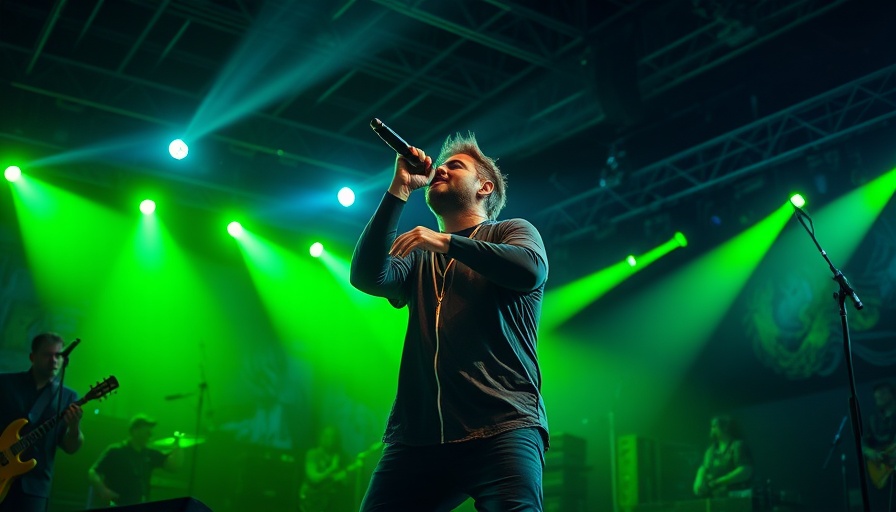
A Legal Victory for Liam Óg Ó hAnnaidh: Court Ruling Explained
The recent dropping of the case against Kneecap rapper Liam Óg Ó hAnnaidh has sparked conversations about legal technicalities in high-profile criminal cases. Originally, Ó hAnnaidh faced charges for allegedly displaying support for the banned group Hezbollah during a performance in London. However, the charge was dismissed by Woolwich Crown Court due to a procedural error related to how the charge was formulated. This ruling has raised important questions about the justice system's handling of politically sensitive cases.
Community Response: A Celebration or Controversy?
As news broke of the court’s ruling, supporters inside the courtroom erupted in applause, highlighting the group's resonance within the community. Kneecap’s manager proclaimed their triumph on social media, emphasizing the artist's innocence and their commitment to fight against what they termed 'political policing.' However, the group's controversial lyrics and public statements about geopolitical issues have drawn mixed reactions within broader societal discussions about free speech and music's role in activism.
The Implications for Artists and Public Expression
This incident underscores the tension between artistic expression and legal limitations. For artists like Ó hAnnaidh and groups such as Kneecap, their performances are often intertwined with political statements. This intersection raises vital issues: Should musicians be scrutinized for their views, or should artistic expression protect them from legal repercussions? As the conversation evolves, many in the music industry are keenly observing how such legal decisions may influence future performances and the public's perception of artistic freedom.
Understanding the Broader Context of Political Expression in Music
Ó hAnnaidh’s case is not an isolated incident. Many artists globally face legal challenges stemming from the content of their work. The significance of this case resonates deeply, especially at events like the Greenman Festival, known for its diverse lineup and progressive ethos. The festival stands as a platform for representation and expression—a site where political statements can flourish alongside artistic endeavors. As communities engage more deeply with music as a form of socio-political commentary, the implications of this case are likely to influence not only the artists themselves but also the audience's understanding of their messages.
 Add Row
Add Row  Add
Add 




Write A Comment